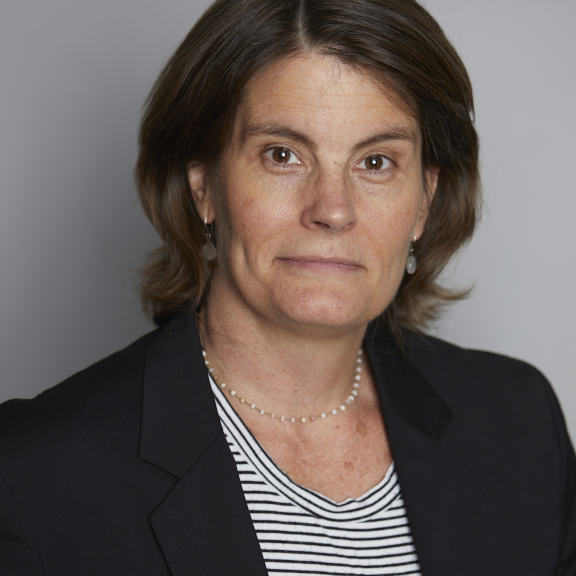Those of our scientists whose earlier careers were associated with ICFO, a research centre of excellence launched in 2002 by the Government and the Polytechnic University of Catalonia, have always held this institute in high regard for its professionalism in every aspect of its activities. As a result, we have also observed ICFO’s good communication practices, following their social media, website, and newsletters. As is often the case when admiring someone’s work, sooner or later, one finds a way to get closer and learn more, to study the ins and outs of their professional practice. A few months ago, we established direct contact with the Corporate Communications Unit, headed by Brook Hardwick, for more than 11 years. We are honored that Brook agreed to give us an interview and share her in-depth knowledge and extensive experience in promoting research and science. Her contribution can benefit both ours and other RDI centres, as ICFO represents some of the best European standards in science PR. Let us move on to the interview, during which Brook answers questions about what is most important in communicating knowledge, the challenges and fascinating aspects of her work, and what she wishes for herself as Head of ICFO’s Corporate Communications Unit in the future.
In your opinion, does the location affect the way science is communicated?
Our Communication team is diverse in terms of backgrounds, nationalities and ages and when we put our heads together, we are creative and highly productive- it is a great working environment. Our unit reflects the rest of our institute in this way- when you bring together highly motivated people who love what they do and enjoy collaborating with people who have different perspectives, there is no telling what you will come up with!
You worked at the Institute of Higher Business Studies (IESE) in Barcelona for more than 12 years. What are the most important learnings and PR strategies gained there, which prepared you for your current position at ICFO?
Both institutes have strategies focusing on institutional excellence and attention to detail, so while one institute focused on international business and the other on producing scientific advances at the very highest international level, some of the core tenets are the same. I have had the privilege of working with exceptionally smart and motivated people and to be in a position to document their advances and their stories. I have spent my entire adult life in very international surroundings which made it easy to slip into my current position at this amazingly international institute. Related to this, I have learned over the years to partner with colleagues with very different backgrounds than my own- colleagues in administration, researchers and students. I think that to work in a communications role, you need to be interested in people, their success stories and their ambitions. This for me has always been the best part of the job and has been an important strategic focus for both of these institutions.
What are the biggest challenges that you consider the Communication & PR divisions of scientific institutions are facing nowadays?
There are so many challenges- fake news and the danger of hype to begin with. Rigorous scientific journalism is competing for the attention of audiences who are accustomed to click-bait/sensationalized stories. Clearly, we have to uphold standards and focus on accuracy while finding new ways to reach wider audiences and tell our story in engaging ways. ICFOnians do basic and applied work in themes relevant to medicine and biology, advanced imaging techniques, information technologies and a range of environmental sensors, tunable and ultra-fast lasers, quantum science, photovoltaics and the properties and applications of nano-materials such as graphene, among others. In this long and incomplete list, there is some very sexy stuff, but sometimes it feels like an uphill battle to get the media to pay attention if you are not announcing a cure to cancer or the discovery of a new planet.
What is your magic recipe for getting the general public interested in the world of science?
I am not sure we have a magic recipe but I would say that in the Communications team, we are very lucky to have a great science writer with a strong physics background who gets just as excited about cool findings as members of the ICFO research teams and works very hard to make sure that those ideas are well conveyed to a large range of audiences. It helps to have someone in the team who “speaks the language” of science. We are working more and more with multi-media and making sure that we have a strong digital presence so that our messages reach target audiences.
This is not just the goal of the Communications team. We have an amazing and proactive Knowledge and Tech Transfer team that the Communications unit actively supports. They have some members of the team that focus on Outreach activities for schools and the general public and others that work closely with companies to take scientific advances from the lab to industry. Knowledge and Technology Transfer is part of ICFO’s core mission as an institute.
How do scientists at your institution approach the promotion of research achievements, and what works best in terms of encouraging them to cooperate with your unit fully?
Our director has always seen the importance of communicating high-impact science- it is good to have the support from above when you need to convince a very busy scientist to participate in a communication initiative. That being said, most ICFO researchers are happy to see their important findings get attention and know that we are here to help.
At the same time, competitive funding agencies are increasingly demanding when it comes to the dissemination of the results of projects. Even the most reticent scientist understands that the general public is funding science and should have an idea of what their tax money is paying for.
What do you think are the five key elements of success in popularizing science?
a. Great raw material (cool science).
b. Scientists who know how to explain their research in a simple way.
c. Presenting science in a wide range of formats (videos, infographics, photos, insta-stories) to give the public “easy” ways to absorb and understand science.
d. Finding good partners – there are journalists doing great work and social media influencers who want to be affiliated with/ connected to new ideas. These relationships are important.
e. Creative outreach units that work with teachers and schools to present complicated topics to young minds.
What is your biggest dream as the Head of the Corporate Communications Unit at ICFO, meaning what impact you would like to achieve in the community?
My dream is that every person living in Barcelona would be just as proud of the science produced in their city as of the football played in Camp Nou.
On behalf of ICTER, thank you very much for your valuable insight, Brook.
Although our institutions are demonstrably different in size – there are twenty-five research groups at ICFO, while ICTER has five – we have a fundamental similarity: both centres’ Communications teams are passionate about presenting groundbreaking research and scientific discoveries in such a way that every person can understand their meaning, importance, and impact on the improvement of health, advancement of knowledge, and development of humanity.

The interview was conducted by Dr. Anna Przybyło-Józefowicz, Communications & PR Manager at ICTER.


